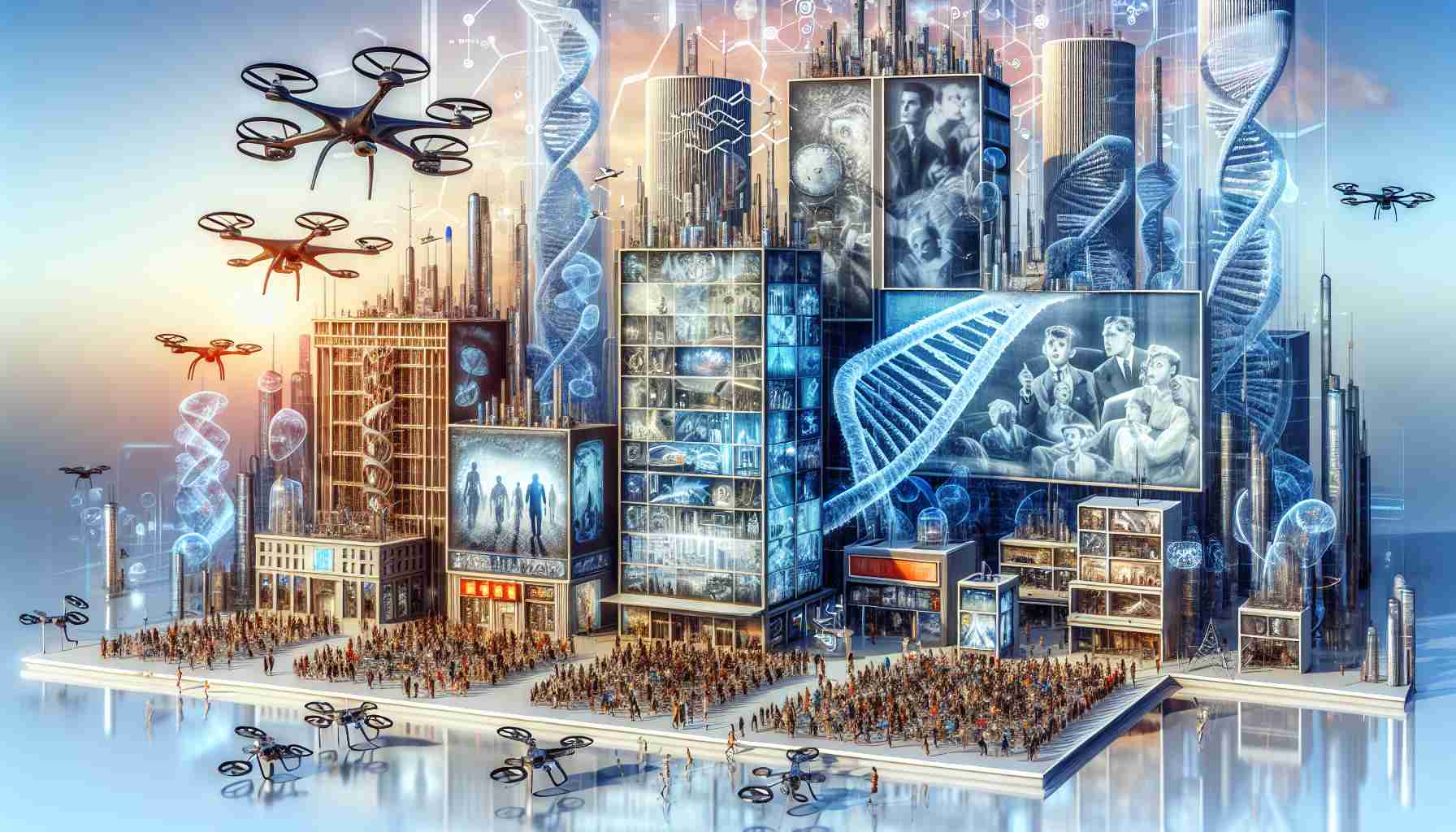The enduring quest for innovation in both real and virtual lives often mirrors historical paradigms, drawing upon cinematic analogies from yesteryears. Emphasizing this notion, reflections on the concept of modernity hark back to the influential 1936 American film “Modern Times,” written, directed, and starring Charlie Chaplin. The association between avant-garde cinema and the evolution of industrialization highlights how reality and imagination have historically converged to influence contemporary technological experimentation.
In a bid to contribute to the ethos of these “Modern Times,” the Federazione Italiana Laureate e Diplomate Istituti Superiori (Fildis) actively promotes discussions on cutting-edge topics such as Artificial Intelligence (AI) and the Metaverse. Established over a century ago in Rome, Fildis, with roots tracing back to 1922, was envisioned by philosopher Isabella Grassi as a platform to uplift women culturally, socially, and spiritually. The organization is also part of the University Women of Europe (UWE).
The Catania chapter of Fildis, led by Professor Nella Inserra, prepares to host a conference tackling national conversations at a local level. Entitled “Artificial Intelligence and Technology: A Challenge for Humans and Society,” the event will be held on April 20 at 5:30 pm at the Hotel Nettuno in Catania.
Expert speakers will delve into topics across mathematical, sociological, and medical sciences. Professor Giovanni Gallo, Professor Francesco Pira, and Doctor Giovanni Magrì are slated to present their insights on AI’s promises and risks, life in the Metaverse and AI era, and experiences in digestive endoscopy with AI, respectively.
Discussions will span the implications of virtual and augmented reality, exploring immersive journeys through the Metaverse using specialized equipment, as well as AI’s capability to rapidly analyze vast data sets, fostering new jobs and economies. This convergence with virtual reality defines a transformative vision where the edge of innovation continually redraws the boundary between the virtual and the actual.
Challenges and Controversies:
The convergence of science and cinema, particularly through the themes of modernity, AI, and the Metaverse, does present several challenges and controversies. A key challenge is the ethical implications of AI and the Metaverse. Concerns over privacy, data security, and the potential for AI to perpetuate bias or make decisions that have significant impacts on individuals’ lives are frequently debated topics. Another controversy is the effect of immersive technologies on human behavior and society, including potential addiction, escapism, and the loss of interpersonal connections in the physical world.
The debate over the digital divide also becomes pertinent as advancements in technology like the Metaverse could widen the gap between those with access to digital tools and those without. There’s also the question of how these technologies will impact employment, with automation and AI possibly displacing certain jobs, even as they create new opportunities in different sectors.
Advantages and Disadvantages:
On the advantage side, the intersection of science and cinema has the potential to demystify complex technological concepts, making them more accessible to the general public. Films and other visual media can stimulate imagination and inspire technological innovation, serving as a catalyst for new ideas and real-world applications. Moreover, using cinematic techniques to visualize the future of technology can fuel public interest and education in science.
However, there are disadvantages as well. The portrayal of technology in cinema may sometimes be unrealistic or sensationalized, leading to misconceptions about the capabilities and risks of AI and virtual reality (VR). Cinema’s vision of modernity and technology can also bias audiences towards fear or unfounded optimism about future technological landscapes. Furthermore, while cinema has the potential to shape public understanding positively, it may also contribute to information echo chambers, where the complexity of technology’s impact on society is overly simplified or dramatized.
For further exploration of the broader themes related to this topic, consider visiting the following websites for a wealth of information on science, cinema, AI, and modern technology:
– The Academy of Canadian Cinema & Television
– American Federation of Teachers (AFT), which often discusses the educational implications of AI and technology
– American Association for the Advancement of Science (AAAS), for scientific perspectives
– ACM SIGGRAPH, for the latest research and developments in computer graphics and interactive techniques, often related to cinema and visualization
Each of these links can provide additional insights and discussions related to the interface between modern technology, AI, the digital realm, and the cinematic presentation of these evolving concepts.
The source of the article is from the blog elektrischnederland.nl

